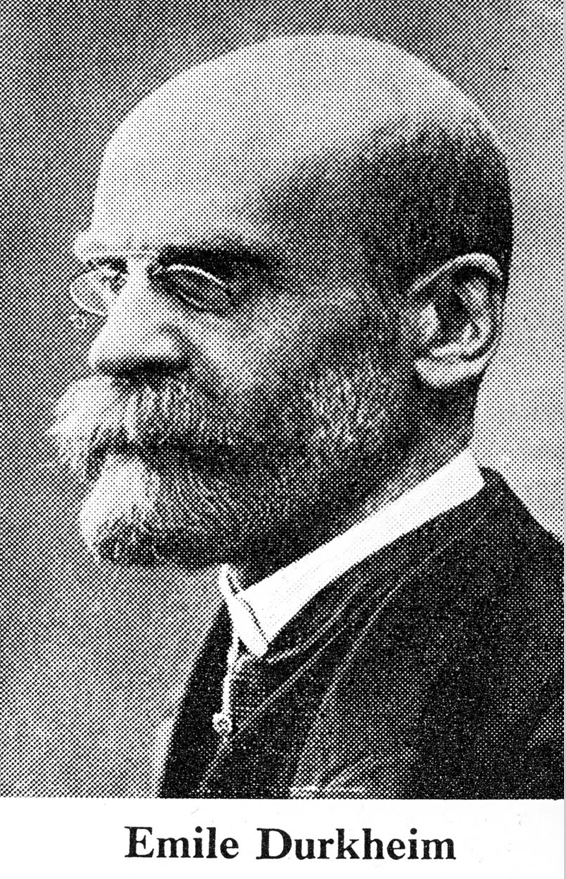A lot (okay, one or two) people talk a lot about solidarity
these days, but how many of them really know what it means, or where it came
from? It sounds good, though, and the
fact that so few people have a grasp on its implications makes it a useful tool
for fast-talking commentators who need to cover up the fact that they have no
idea what they’re talking about.
It’s not all that hard, frankly. Solidarity is a characteristic of groups, per se.
In a broad sense, it’s acceptance of the mythos that defines the group
as that group and no other, and holds it together.
Sociologist David Émile Durkheim (1858-1917) first applied
the term solidarism to a fascist and socialist (“entirely positivist” — Joseph A. Schumpeter, History of Economic Analysis.
New York: Oxford University Press, 1954, 413) form of
corporatism. Best known as a sociologist
of religion, Durkheim’s influence on modernism was great.
Durkeim presented his religious theories in his book, Les forms élémentaires de la vie religieuse
(1912), “The Elementary Forms of Religious Life.” (First English edition published simultaneously in 1915 in London by
Allen & Unwin, and in New York by Macmillan and Co.) Fulton Sheen
characterized Durkheim’s view of God as “a divinized society.” (Fulton J. Sheen, Religion Without God. New
York: Garden City Books, 1954, 54) As Joseph Alois Schumpeter
(1883-1950) put it, for Durkheim, “religion is the group’s worship of itself.” (Schumpeter, History of Economic Analysis, op. cit., 794.) This is a
logical conclusion drawn from Durkheim’s belief that religion is a social,
rather than a spiritual phenomenon.
Durkheim based his theories on the belief that the
collective is essentially different from the individuals who make it up, and
has an independent existence in its own right. (Antony Black, Guilds and
Civil Society in European Political Thought from the Twelfth Century to Present.
Cambridge, United Kingdom: Cambridge University Press, 1984, 223.) There
is therefore an unavoidable conflict between the individual and society, just
as Aristotle assumed. This conflict
increases as technology advances and humanity becomes separated from direct
production.
 |
| Not a new principle. |
For Durkheim, only the collective has rights; individual
ethics are merely expedient and necessarily give way before the demands of
social ethics. As Schumpeter commented,
this is “a principle that was anything but new but assumed a particular form in
his hand.” (Schumpeter, History of Economic Analysis, op. cit.,
794.)
According to Durkheim, the division of labor under
capitalism causes “juridical and moral anomie.”
(Black, Guilds and Civil Society, op. cit., 226.) Anomie is
Durkheim’s term for the progressive social disintegration (Mueller, The
Church and the Social Question, op. cit., 29) brought about by the lex talonis — law of the jungle —
imposed by owners of capital on non-owners, resulting in a constant state of
conflict between employers and unions. (Black,
Guilds and Civil Society, op. cit.,
226; Cf. Frank Tannenbaum, “The Social Function of Trade Unionism,” Political Science Quarterly, 62 (1947),
163.) Thus, in Durkheim’s view, “[i]t is the law of the strongest which
rules, and there is inevitably a chronic state of war, latent or acute.” (Black, Guilds
and Civil Society, op. cit., 226.)

